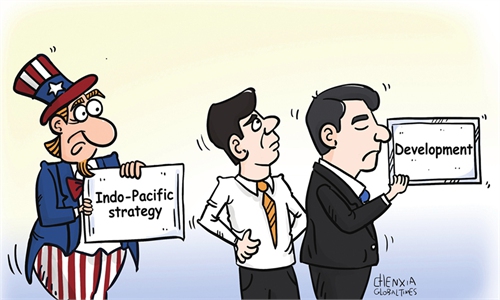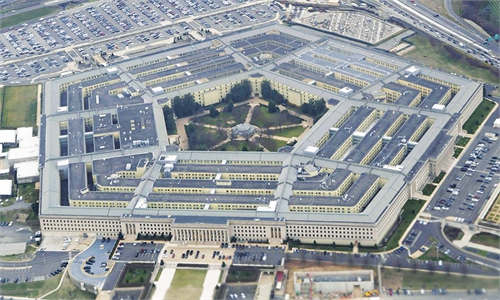
Kurt Campbell Photo: AFP
What has led Kurt Campbell to become the State Department's second-ranking diplomat? Known as the "Indo-Pacific Czar" or "Asia Czar," Campbell's "outstanding achievement" lies in his role as the originator, promoter, and implementer of a series of US policies aimed at suppressing, containing and competing with China. These policies include the "Pivot to Asia" during the Obama era and the "Indo-Pacific Strategy" of the Biden administration.The US Senate voted on Tuesday to approve Campbell, who currently serves as the coordinator for Indo-Pacific Affairs on the National Security Council, as the deputy secretary of state, making him the No.2 position at the State Department. This once again highlights the US' focus on strategic competition and even aggressive competition toward China.
Simultaneously, this also sends a signal to the US' Asia-Pacific allies that, despite the current international challenges the US faces, such as the Russia-Ukraine conflict, the Israel-Palestine conflict and tensions in the Middle East, the Asia-Pacific region's pivotal role in US strategy will persist, thereby serving as a "reassurance" to its allies.
Campbell has gained support from both Republicans and Democrats, which is quite rare in today's highly polarized Washington. The overwhelming 92-5 vote indicates that despite party divisions, there is consensus on the mainstream principles of US policy, represented by political elites like Campbell, in terms of the strategic direction of containing and countering China, said Li Haidong, a professor at the China Foreign Affairs University.
As a "China expert," Campbell's tough attitude toward China has been consistent. He once said in an interview that "competition remains the dominant theme in China-US relationship," believing the current state of US-China relations is a result of China's rise challenging the international and regional order led by the US. This reflects his misunderstanding and arrogance toward China's diplomacy, development pattern, and bilateral relations.
Campbell advocates for strategic layouts such as building a network of allies, wooing European and Asian allies to form a high-pressure situation against China, and establishing multiple small multilateral mechanisms under various Indo-Pacific frameworks such as QUAD, AUKUS, and the US-Japan-South Korea alliance. Therefore, it is expected that after Campbell takes the position, the US' strategic competition toward China will continue to intensify, aiming to achieve the goal outlined in the US National Security Strategy report - out-competing China, said Sun Chenghao, head of US-EU program at the Center for International Security and Strategy at Tsinghua University.
Campbell's ideas also reflect the traditional establishment concept of the US, which is to compete with China on one hand while building guardrails and managing competition to avoid conflict on the other. In an interview last October, Campbell stated that the US can work with China in areas of mutual interest such as climate issues, and continue high-level engagement and pragmatic communication.
However, Sun believes that the current US policy toward China has significant problems and has not truly stabilized US-China relations, making its Asia-Pacific policy unsuccessful. The intense polarization of domestic politics in the US and the uncertainties brought by a potential Trump administration in the future will severely affect US policy toward China. The US regards China as a strategic competitor, leading to camp formation, decoupling, and "small circles," which will actually have a significant impact on the overall peace and prosperity of the Asia-Pacific region.
After Campbell becomes the deputy secretary of state, the US will generate a stronger sense of geopolitical competition, thereby enabling its "Indo-Pacific Strategy" against China to persist in the long term.
Regarding the US' strategic competition with China that the Biden administration and Campbell have repeatedly emphasized, China's attitude and position is clear. China doesn't shy away from competition, but it believes competition should be fair, reasonable and based on rules. More importantly, for the sake of stabilizing China-US relations, Campbell had better remember competition shouldn't define the entirety of China-US ties.



